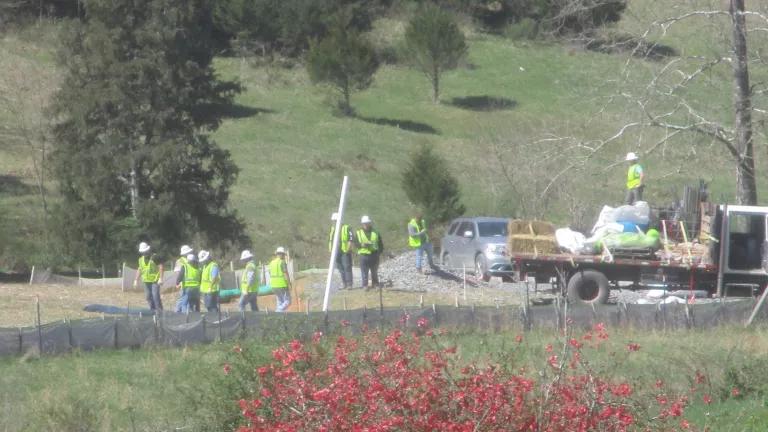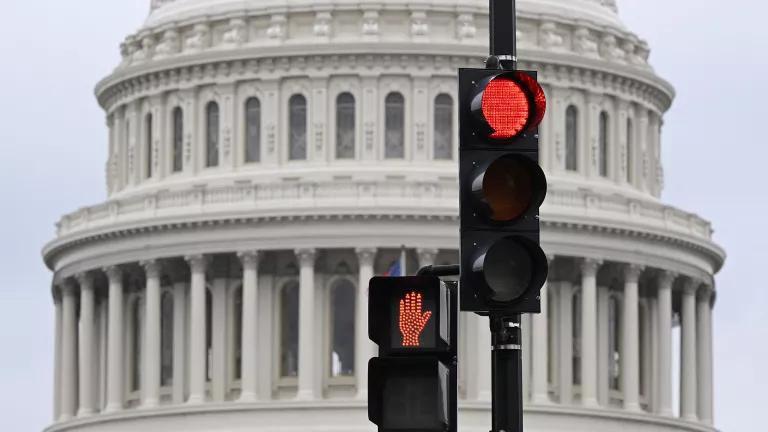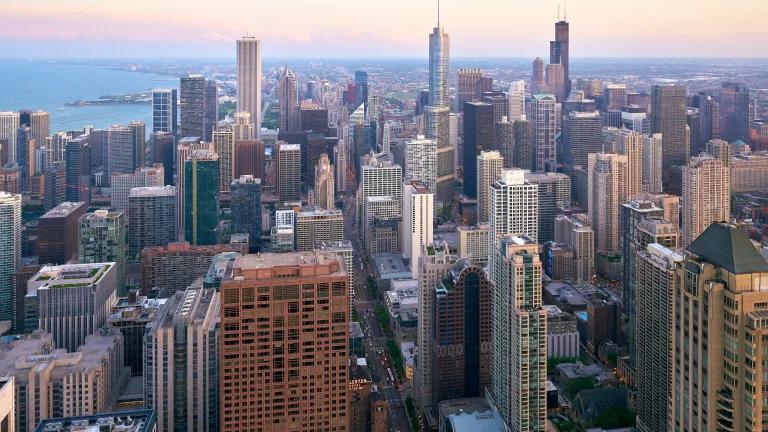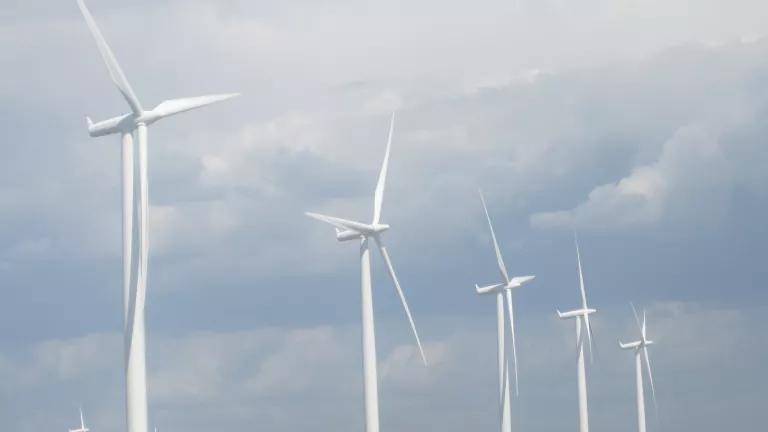Virginia: Protect pipeline communities from COVID-19
Workplace and community safeguards for COVID-19 need to be in place before any work continues and in case full construction is permitted to resume during the pandemic.

Pipeline construction crew
Along with threats to clean water sources, endangered species habitat, the climate, private property, and public safety, the Mountain Valley Pipeline (MVP) can now add the threat of community COVID spread to its wall of shame. Construction of the pipeline is currently on hold due to non-compliance with federal laws, but some work along the pipeline route continues. Designed to transport gas more than 300 miles from the extraction fields of northern West Virginia by blasting through the Blue Ridge mountains, it’s already about three years and more than $2.5 billion over budget. We’ve outlined all the reasons why this unnecessary pipeline should be stopped for good, but Virginia needs to take action now to ensure both workplace and community safeguards for COVID-19 are in place before any work continues and in case full construction is permitted to resume during the pandemic.
In May, the Chairman and CEO of Equitrans Midstream Corporation (the parent company of MVP’s majority owner) said that, if the pipeline is permitted to resume construction at some point in the future, “…. we will fully mobilize and get upwards of 4,000 people right way (sic)….”
That would be a lot of workers descending on the six counties in mostly rural southern Virginia where pipeline construction would take place. Some of the communities along the pipeline route are already designated as medically underserved areas or health professional shortage areas, and the six counties combined have fewer than 100 intensive care hospital beds. Three (Craig, Giles, and Pittsylvania) have no intensive care units at all, Franklin has only 4 beds, Montgomery has 22, and the vast majority —71— are in Roanoke, about 70 miles from some of the communities where construction would occur. Nearly 2,000 college students in these counties have already tested positive. And local residents have reported pipeline workers without face coverings. as seen in the photo above.
Southwest Virginia is currently experiencing a dramatic spike in new cases; the region has twice the rate of new COVID-19 cases compared to the rest of the state. The Chief Operating Officer of the region’s health care system said, “To put everything bluntly, we could easily run out of resources for our patients.”
In August, 22 state legislators sent a letter to Virginia’s Governor, Health and Human Services Secretary, and State Health Commissioner, asking them to stop pipeline construction during the pandemic to remove the risk of COVID-19 outbreaks in the region. They added that, “These same communities have high concentrations of older people, poor people, and those with cardiovascular diseases, COPD, and other conditions that place them at high risk during this pandemic.” Also in August, state legislators introduced a bill to require any employer with 50 or more temporary employees to submit comprehensive safety and health standards for approval to the Virginia Department of Labor before being starting work.
When it comes to MVP, this bill couldn’t have been more relevant. The pipeline hasn’t earned the public’s trust that it will do the right thing and abide by all laws. On the contrary: in addition to flouting federal law, the owners have paid over $2 million in state penalties for more than 300 water quality violations cited by Virginia and West Virginia, and now there are allegations of even more. Before construction started, it came to light that the primary contractor selected by MVP was involved with citations for three other pipelines related to water quality, yet MVP hired them anyway. Do these sound like companies that Virginia should trust with the health of its citizens during a deadly pandemic?
The good news is that Virginia instituted strong employer standards for infectious disease prevention back in July. Indeed, it was the first state in the country to do so. Among other safeguards, the standards require employers to develop and implement a written Infectious Disease Preparedness and Response Plan.
The bad news is that MVP has not provided a plan to state authorities or the public. According to a report on agency staff notes obtained via a Freedom of Information Act (FOIA) request, the Virginia Department of Health asked MVP for its plan, but the company “didn’t want to send the plan due to FOIA.” Meaning – the company doesn’t want it to see the light of day. In addition, it’s not just MVP that needs a plan; the company has many contractors and subcontractors that all have to have plans. Last year one county alone identified 24 contractors and subcontractors.
Under the state rules, public and private educational institutions have to submit their plans to state authorities for approval. So what is MVP afraid of? If it has a plan that complies with state requirements, it should have nothing to fear. On the other hand, local citizens have much to fear from thousands of workers coming to their communities during a pandemic.
Because of the magnitude of the workforce and the company’s track record, it’s time for MVP, contractors, and subcontractors to provide their Infectious Disease Preparedness and Response Plans to state authorities and the public in a transparent way. The plans should be carefully reviewed by state authorities to ensure they comply with all state policies—the Emergency Temporary Standard for Infectious Disease Prevention, Phase Three Guidelines for All Business Sectors and Interim Guidance for Migrant Labor Camp Operators and Employees Regarding COVID-19—before more work is allowed to proceed. State officials should also ensure a system is in place to monitor COVID-19 spread in the pipeline workforce and local communities, and take immediate steps to stop work should there be evidence that the plans and practices of pipeline companies are not in full compliance or of community spread.
These state policies are designed to provide protections for workers as well as local communities. Unlike other large employers, MVP is expected to have workers from outside the area--even from other states--who will be staying in local hotels and frequenting restaurants, yet they may not have local doctors or other resources. In addition to workplace protections, MVP can and should establish relationships with local health departments, develop plans for ill employees who do not live in the area, and ensure that hotels and restaurants are also equipped to minimize health risks. Earlier this month the CDC issued new guidance recommending that schools pro-actively test students returning to campus from other locations. While it’s unfortunately not mandatory, many schools are doing this testing. With as many as 4,000 incoming pipeline workers, we urge county and state officials to ask the same from MVP.




